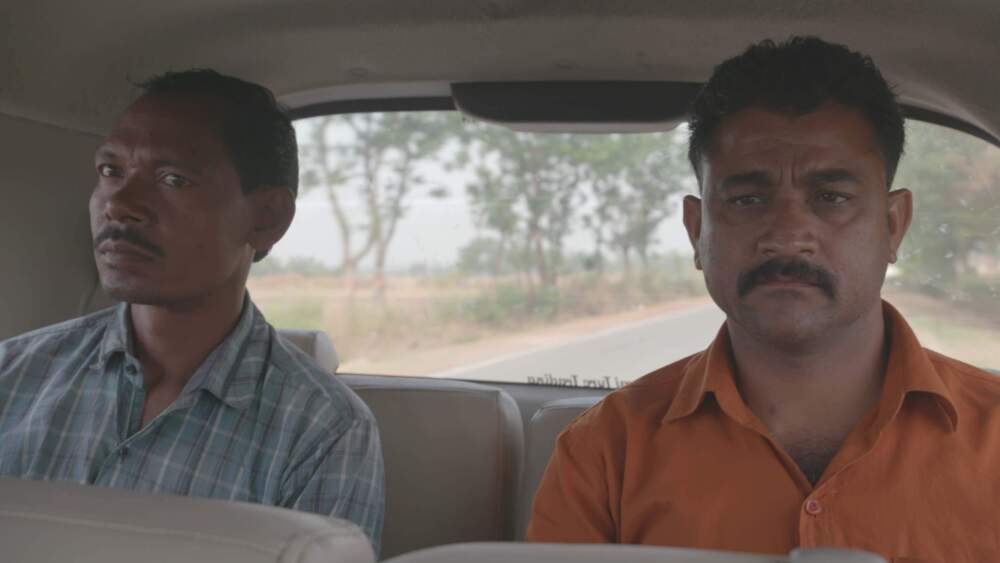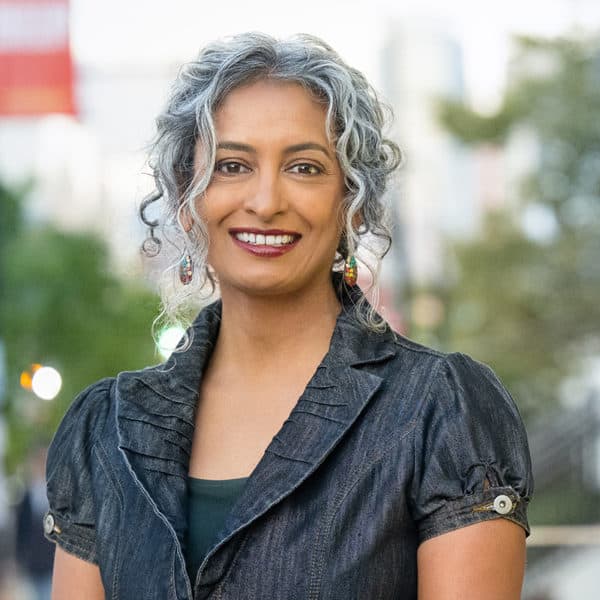Advertisement
‘To Kill a Tiger’ tells of a family fighting for justice after a sexual assault in Jharkhand
Resume
Editor’s note: This segment was rebroadcast on March 1, 2024. Click here for that audio.
This segment addresses sexual violence.
In a village in the Indian state of Jharkhand, three men sexually assaulted a 13-year-old girl after a wedding. She survived and made it home to her family, including her father Ranjit.
When members of her community found out, their solution was for the victim to marry one of her rapists and let all the perpetrators go free. But her family vowed to seek justice, something rarely done in India. Their story is at the center of director Nisha Pahuja’s new documentary, “To Kill a Tiger.” The film’s executive producers include Mindy Kaling, Dev Patel and Rupi Kaur.
To protect her privacy, the film calls Ranjit’s daughter Kiran. The documentary states that an estimated 90% of rapes in India go unreported, so the family’s decision to combat the culture of silence was extraordinary. And Pahuja aimed to elevate their story of resistance and resilience through her film.
“I've been interested in exploring the issue of gender justice and violence against women in India for a number of years,” Pahuja says. “It felt like this particular story could illuminate the why behind the headlines that continually come out of India.”
5 questions with writer and director Nisha Pahuja
What is the culture around rape and sexual assault like in the part of Jharkhand that Kiran and her family are from?
“There's a sense of shame and a loss of honor to the family and a loss of honor to the community.
“So sexual assault, sexual violence, is suppressed in the community. It's not talked about. It's hidden. And of course, what was so exceptional and what was so unusual about this particular family, is how they broke the mold, the courage that they had, and this conviction and a belief in justice and also in doing the right thing to ensure that it didn't happen to others.”
Kiran’s father was her biggest advocate. How is that unusual?
“Girls are just valued less than boys. They're just not given the same importance. And that's because boys are additive. Boys take care of their families, whereas girls, because of dowry, they take wealth from the family. They're never seen as belonging to the family.
“I think also it has to do with shame. It has to do with ideas that a woman's virginity and a girl's virginity, that is part of your family honor. It's part of community honor, and you are the guardian of that.
“So for you to come forward and say that you weren't able to protect that honor means that you have failed as a man.”
Not many people in the film acknowledge the trauma the survivor deals with. How did she make it through that?
“I'm in touch with the family, and I'm in touch with her regularly. She's in a much, much better place right now. And I think for her, a lot of it was the support that she received from her family. They believed her.
“Her parents, her family, they didn't make her feel guilty. They didn't make her feel ashamed. They really were on her side. And that was a tremendous amount of support.
“But I think that is definitely changing in India as well, that culture and that recognition of child rights and trauma.”
What do you say to people who try to distance themselves from this kind of violence by saying it only happens in rural villages in India?
“It's a lot easier to say that the problem is over there. It's a lot harder to look inside and to look within our own communities and our own nations and to recognize the issues that exist here.
“I think it's [six] years since #MeToo. I don't know how much has really changed. And if you look at sort of statistics around sexual assault and rape in the United States, they're really shocking.
“You cannot say that it's a problem that just exists over there. It's universal.”
What do you hope viewers take away from watching the documentary?
“I think part of it for sure is the sense of men standing up, of us as women not fighting this fight alone, the need to look at masculinity, the need to understand that piece and to understand that that's a piece that actually plays a huge role in not just the oppression of women, but also the oppression of men and redefining masculinity, coming up with healthy masculinities.
“Sort of on a more philosophical level, it's just how slow change is, but how necessary it is to take that step, to have the courage to take that step.”
Gabrielle Healy produced and edited this interview for broadcast with Todd Mundt. Grace Griffin adapted it for the web.
This segment aired on October 26, 2023.


